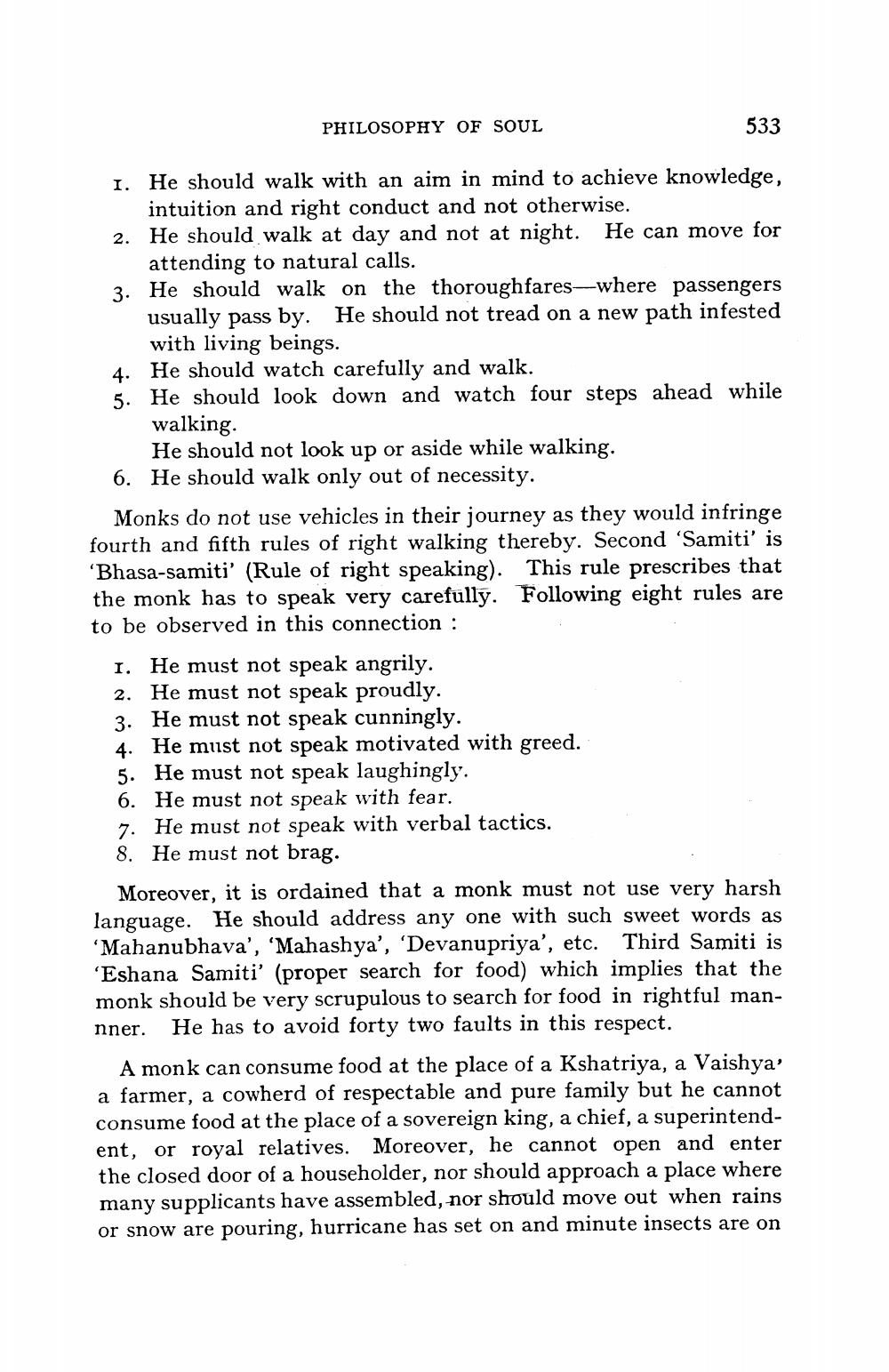________________
PHILOSOPHY OF SOUL
533
1. He should walk with an aim in mind to achieve knowledge,
intuition and right conduct and not otherwise. 2. He should walk at day and not at night. He can move for
attending to natural calls. He should walk on the thoroughfares-where passengers usually pass by. He should not tread on a new path infested
with living beings. 4. He should watch carefully and walk. 5. He should look down and watch four steps ahead while
walking
He should not look up or aside while walking. 6. He should walk only out of necessity.
Monks do not use vehicles in their journey as they would infringe fourth and fifth rules of right walking thereby. Second 'Samiti' is 'Bhasa-samiti' (Rule of right speaking). This rule prescribes that the monk has to speak very carefully. Following eight rules are to be observed in this connection :
1. He must not speak angrily. 2. He must not speak proudly.
He must not speak cunningly. 4. He must not speak motivated with greed. 5. He must not speak laughingly. 6. He must not speak with fear. 7. He must not speak with verbal tactics. 8. He must not brag.
Moreover, it is ordained that a monk must not use very harsh language. He should address any one with such sweet words as 'Mahanubhava', 'Mahashya', 'Devanupriya', etc. Third Samiti is 'Eshana Samiti' (proper search for food) which implies that the monk should be very scrupulous to search for food in rightful mannner. He has to avoid forty two faults in this respect.
A monk can consume food at the place of a Kshatriya, a Vaishya' a farmer, a cowherd of respectable and pure family but he cannot consume food at the place of a sovereign king, a chief, a superintendent, or royal relatives. Moreover, he cannot open and enter the closed door of a householder, nor should approach a place where many supplicants have assembled, nor should move out when rains or snow are pouring, hurricane has set on and minute insects are on




